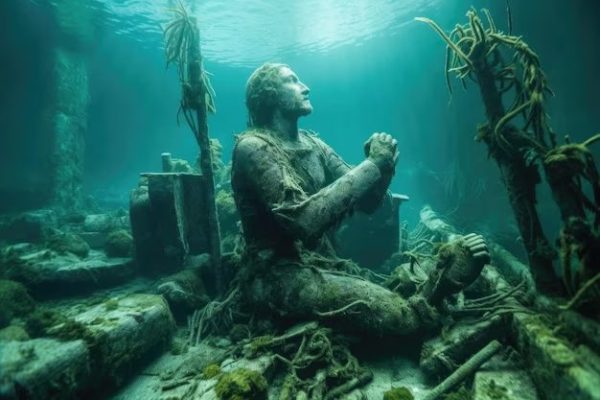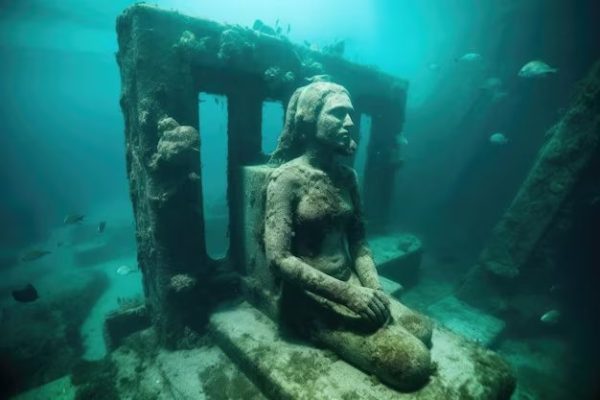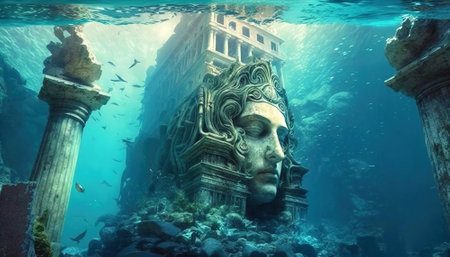In the ancient annals of human history, a tale emerges from the depths of time, a story woven by the Greek philosopher Plato around 2,300 years ago.

This narrative speaks of a grand civilization, a mighty city known as Atlantis, which met a catastrophic end, sinking beneath the waves of the Atlantic Ocean. As the centuries have passed, Atlantis has become a legendary enigma, a riddle that continues to elude the grasp of historians and scholars.
Plato’s account of Atlantis is found in two of his dialogues, “Timaeus” and “Critias.” According to Plato, Atlantis was a powerful and advanced society situated on an island in the Atlantic Ocean.

This civilization, ruled by powerful kings descended from the god Poseidon, held dominion over a network of islands and parts of Europe and Africa. The Atlanteans were described as prosperous and technologically adept, with grand architecture, canals, and fertile land.
The demise of Atlantis, as narrated by Plato, was a cataclysmic event. The city, after attempting to conquer other parts of the world, faced retaliation from ancient Athens.

Following a failed invasion of Athens, Atlantis was struck by a series of earthquakes and floods, ultimately sinking into the ocean. The once-mighty civilization vanished beneath the waves, leaving behind a mystery that has echoed through the corridors of time.
Over the centuries, numerous theories and speculations have emerged in an attempt to unravel the secrets of Atlantis:
- Atlantis in the Atlantic: Plato’s account places Atlantis in the Atlantic Ocean, sparking searches for its location in the depths of the Atlantic. Some theories suggest regions like the Bermuda Triangle or near the Azores as potential locations.
- Natural Disasters: Theories propose that Atlantis met its end due to natural disasters such as earthquakes, volcanic eruptions, or tsunamis. The eruption of the Santorini volcano in the Aegean is often cited as a possible inspiration for Plato’s narrative.
- Antarctica as Atlantis: Some propose that Atlantis was once located in Antarctica before the continent shifted to its current icy position. This theory challenges conventional views of Antarctica’s historical climate.
- Mediterranean Atlantis: Alternative theories suggest that Atlantis could be located in the Mediterranean, with regions like the island of Santorini or Crete considered as potential sites.
- Symbolic Allegory: Skeptics argue that Atlantis never existed as a physical place but was a symbolic allegory created by Plato to convey philosophical and moral lessons. According to this view, Atlantis serves as a cautionary tale about the consequences of hubris and societal decay.
As the search for Atlantis continues, fueled by both scientific curiosity and speculative intrigue, the enigma of this lost city persists as a captivating mystery.

Whether Atlantis was a real, flourishing civilization or a metaphorical construct, its enduring presence in human consciousness reflects the timeless fascination with the unknown and the allure of ancient mysteries.
The quest to unlock the secrets of Atlantis remains an ongoing journey through the corridors of history, guided by the echoes of a narrative that transcends the boundaries of time.





